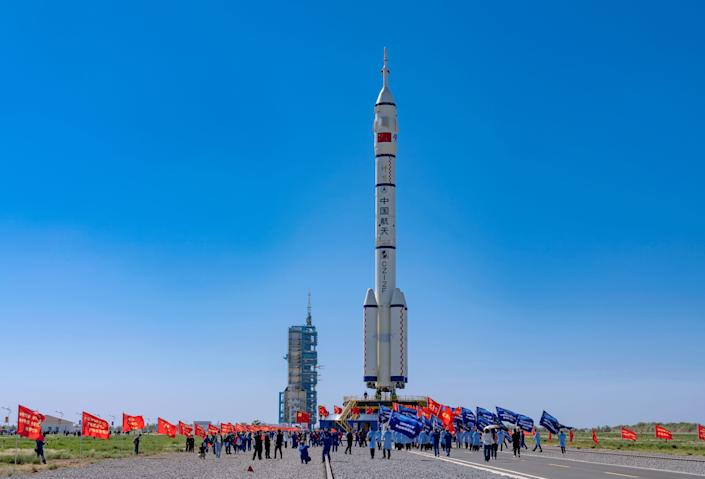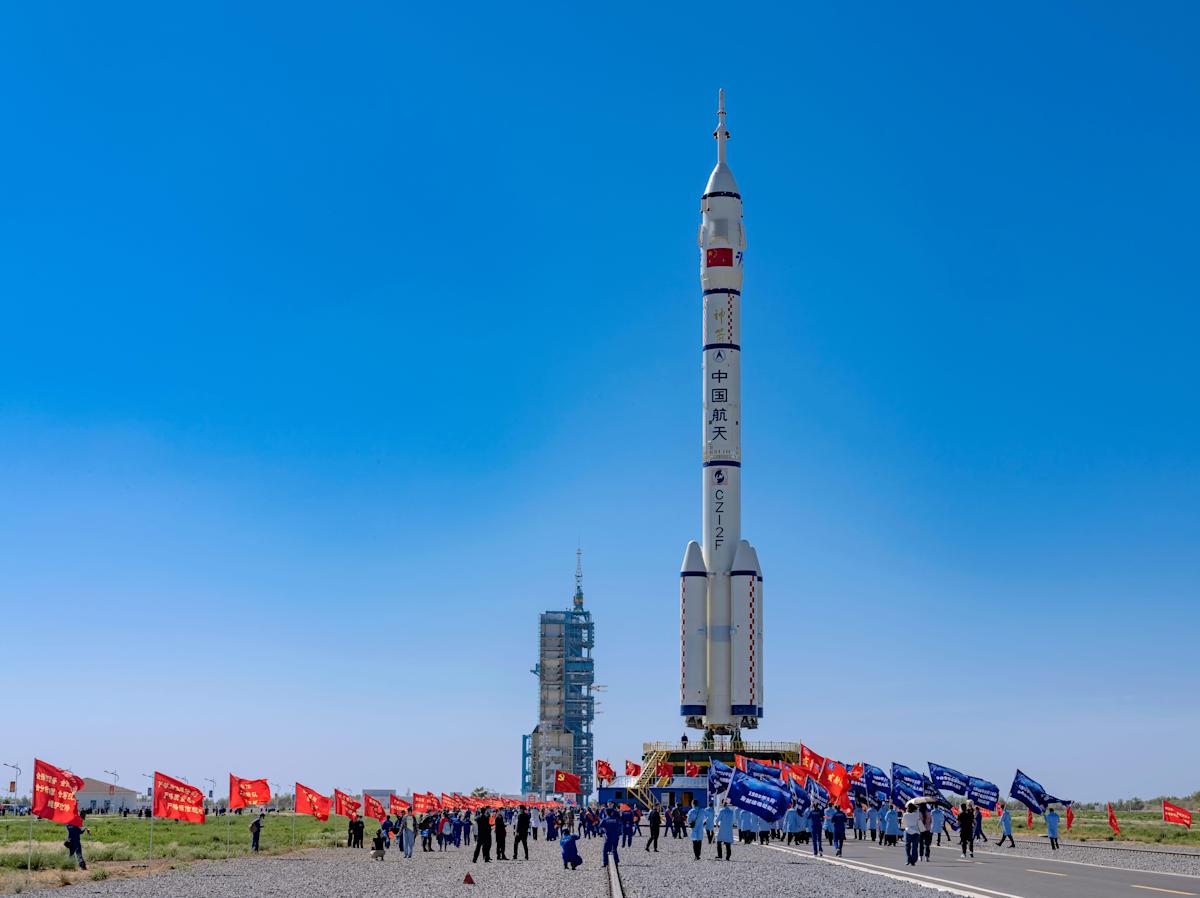
-
According to local media, China’s main satellite launch center found a jammer near its base just before launch.
-
The device, which has a maximum range of about 32 feet and is for sale online, was found inside a car.
-
The jammer could interfere with a satellite’s signal, a scientist from the center told SCMP.
Researchers at a space center in China said they found a jamming device just outside their base just weeks before a planned rocket launch, according to local news outlets.
The device was found about two weeks ago in a car driving near the Jiuquan Satellite Launch Center in Gansu province, Yangtze Evening News reported Sunday.
The space center did not say whether the incident was an act of sabotage, but noted that the jammer could disrupt navigation systems and send a missile off course, according to the outlet.
China will send three astronauts to its Tiangong space station on Sunday via its Shenzhou-14 rocket. Among the crew is Liu Yang, who in 2012 became China’s first woman to be sent into space.
According to Yangtze Evening News, scientists at the Jiuquan Space Center began detecting “abnormal” interference signals earlier this month and spent several days tracking them down.
The device discovered was a small-frequency transmitter with a typical maximum range of 32 feet, according to The South China Morning Post. The outlet reported that such devices can be purchased on e-commerce websites such as “Taobao” – Amazon’s robust version in China.
Despite its size, the device could be used to disrupt a satellite’s signal, which is already weak because it is radiated from altitudes more than 12,000 feet above Earth, a scientist at the center told SCMP.
As of Tuesday morning Beijing time, the launch of the Shenzhou-14 is still going as planned, with the Jiuquan space center’s facilities and equipment “in good working order,” Xinhua News reported.
If successful, the manned mission will be the start of the final construction phase of the Tiangong Space Station – China’s answer to the International Space Station (ISS). Chinese astronauts have been banned from entering the ISS since 2011 due to security concerns in the US.
Tiangong, meaning ‘Heavenly Palace’, consists of three modules installed one by one. The first module has been in orbit since April 2021.
Read the original article on Business Insider

